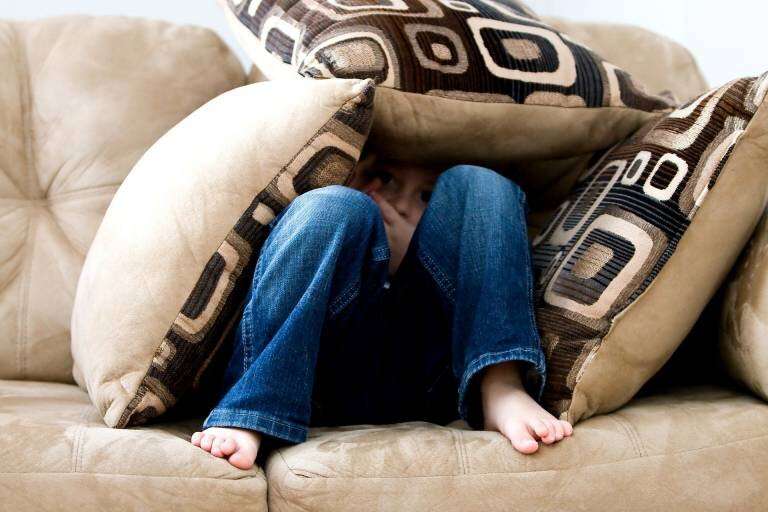
Children who have adverse experiences such as being smacked at the age of three are more likely to suffer from poor mental health and have behavioral problems through to age 14, according to a study led by UCL researchers.
Children who have adverse experiences such as being smacked at the age of three are more likely to suffer from poor mental health and have behavioral problems through to age 14, according to a study led by UCL researchers.
The study, published in the journal Child Abuse and Neglect investigates the long-term effects of ‘adverse childhood experiences’ (ACEs) on children between the ages 3 to 14 and builds on previous evidence by UCL researchers which led to the smacking ban in Scotland last year.
Researchers say this new study adds more weight to calls to provide children in England with legal protection from smacking and physical punishment.
The research team analyzed responses from a sample of over 8,000 members of the Millennium Cohort Study (MCS) – a longitudinal survey following a nationally representative of 19,000 children born in the UK in 2000–2001.
Data was provided at six points throughout the participants’ childhoods at the age of nine months, three, five, seven, 11 and 14 years of age. Parents were asked about how often they smacked their children or what they did when their children were naughty, such as sending them to their room or shouting at them.
They were also asked questions about parental conflict, alcohol misuse and psychiatric disorders. This data was then matched with information, also obtained from the MCS, about the behavior and wellbeing of their children such as whether they fought with other children or exhibited a range of emotional problems.
The researchers found that two thirds of the children had experienced one ACE or more by the age of three. Nearly one in five experienced two ACEs and one in six experienced three or more. The associations between adverse experiences and poor mental health followed a ‘dose-response’ pattern, with better outcomes for those experiencing no ACEs, and the poorest outcomes for those experiencing three or more ACEs.
The most common ACEs were parental depression, harsh parenting, smacking, use of force between parents, and parental alcohol misuse.
Boys were slightly more likely than girls to be parented harshly and smacked and also more likely to exhibit challenging behavior but overall, there were no significant gender differences when it came to the effects on their mental health.
First author, Dr. Leonardo Bevilacqua (UCL Institute of Education, Department of Psychology and Human Development) said: “It comes as no surprise that those children who have no or few adverse experiences as young children fare best of all and that those who have more negative experiences are more likely to behave antisocially and have poor mental health such as anxiety and depressive symptoms.
“Our research, however, shows just how long those problems can persist at what is such an important and formative part of a young person’s life.”
The paper also shows that parental conflict and parental depression were strongly associated with ‘internalising problems’ among children such as playing alone, being nervous in new situations or lacking confidence, worrying, being down-hearted or tearful. These behaviors were also shown to increase as the children got older from three to 14 and the more bad things they experienced, the more problems they exhibited.
Physical punishment and harsh parenting (such as shouting, sending children to their rooms and ignoring children) were strongly associated with worse mental health outcomes from childhood through to adolescence, particularly ‘externalising problems’ such as temper tantrums.
Dr. Bevilacqua added: “Interestingly and importantly we saw ‘externalising behavior’ problems such as temper tantrums, fighting, lying, being easily distracted or hyperactive decrease up to the age of 11 but then increase by age 14. Again, the more bad experiences reported, the more behavior problems we observed.
“Our findings around the stark links between harsh parenting and physical punishment and poor mental health through childhood and into adolescence provide a clear message to policy-makers on the need to protect children and educate parents.”
The authors noted that there are several limitations when it comes to using ACEs as a measurement such as other influences on children’s wellbeing and further research would benefit from having multiple sources of data such as from teachers as well as parents.
However, overall, the authors noted that their findings from this large national study lend further support to existing calls from advocates for the human rights and welfare of children to abolish physical punishment in all settings including the family. They also say there is good evidence that legal bans are associated with accelerated declines in the prevalence of physical punishment.
In Scotland a new law against smacking children was passed in November 2020 meaning that the previous so-called ‘justifiable assault’ defense of physical punishment towards children under 16 is no longer acceptable. A similar bill is passing through the legislative process in Wales but is yet to be introduced in England and Northern Ireland
Dr. Rebecca Lacey (UCL Epidemiology and Health Care) said: “It is time for England to follow suit and take notice of this well-established body of research and accept the evidence around the long term negative effects of harsh parenting and physical punishment on children’s health and happiness is irrefutable.
Source: Read Full Article
